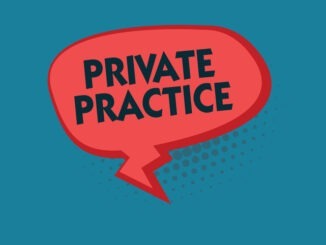
Private practice is significantly restricted for GMS and PMS contractors, so what do GPs need to know about private referrals and private prescribing?
CREDIT: This is an edited version of an article that originally appeared on British Medical Association
New contractual regulations, introduced in October 2019, restrict GP practices from offering or advertising – during NHS working time and on NHS funded property – private services to anyone (whether a registered patient or not), if those services fall within the scope of primary medical services.
This means that if a practice provides an NHS-commissioned service they cannot then charge for (or host) that same service during hours where they provide those NHS services and on their practice premises.
This does not affect a practice’s ability to charge non-registered patients for services that are not part of primary medical services (ie not NHS-commissioned services) or to charge their own patients in the limited circumstances outlined above.
Charging patients for services through private companies
Some GPs may choose to hold shares, or be partners, in private companies providing medical services, and the question arises whether the private company can charge the GP’s NHS patients for private services.
Even where the GP is not personally charging his/her own patients for the service, but it is, instead, the company that is charging the patients at arm’s length, it is likely that the arrangement will fall foul of Regulation 24.
There is an argument that the ability of any GP to charge patients through a private company hinges on the nature and definition of the ‘contractor’. For GMS, a contractor is defined as ‘a person or entity that can hold a GMS contract’. Part 2, Regulation 5, of the GMS regulations defines who can hold a GMS contract as:
- a medical practitioner;
- two or more persons practising in a partnership;
- a company limited by shares.
It has been proposed that any one or more individuals falling outside these groups could, arguably, be entitled to charge a fee or remuneration for the provision of any treatment; in other words, GPs would have to be – or be set up as - a different entity from the one that holds the contract.
For example, single-handed doctors could, arguably, set up a company or partnership that could charge patients. However, as we have seen, the regulations prohibit these entities or groups of people from charging their NHS patients for private services, and it is not clear that providing services in this way would avoid them successfully. It is recommended that GPs contact their LMC or the GPC if they wish to provide private services to patients via private companies.
Private GP referrals to the NHS
Section 8.2 of the Department of Health’s Guidance on NHS patients who wish to pay for additional private care (2009) is still extant, and was not altered by the Health and Social Care Act 2012.
The Department of Health clarified that ‘patients who have chosen to pay privately for an element of their care are entitled to receive NHS diagnostic tests free of charge as long as they are eligible. A referral by a private GP for an NHS diagnostic test should not be any different from an NHS GP referral’. Private GPs are free to refer their patients to the NHS in the same way as NHS GPs can refer their patients to the private sector.
The 1986 handbook Management of private practice in health service hospitals in England and Wales, which sets out the key principles that govern private practice in the NHS, states:
‘All fully -general medical practitioners may refer patients to NHS hospitals irrespective of whether they are treating them under the NHS or privately.’
This principle is also underpinned in paragraph four of the handbook – that patients wishing to be treated privately are entitled to the same NHS services as any other patient with the same clinical need. However, it should always remain clear whether the patient is receiving private or NHS care.
Private prescribing
Wholly private GPs cannot issue NHS prescriptions and can only provide private prescriptions. NHS GPs, on the other hand, cannot charge NHS patients for prescriptions but can charge private patients who are not on their NHS list for prescriptions; additionally, NHS GPs cannot issue NHS prescriptions to private patients.
However, it should be noted that there are certain prescriptions that NHS GPs can charge their registered NHS patients for. These are covered under part five, Regulation 25 of the National Health Service (General Medical Services contracts) Regulations 2015 and include, for example, malarial chemoprophylaxis and medicines that may be required to treat an illness once the patient is abroad.
Patients who are on a course of treatment requiring an expensive course of drugs are more likely to opt for NHS prescriptions; as such, some patients might have two GPs – an NHS and a private GP to keep the management of their care cost-effective.
Special requirements for the private prescribing of controlled drugs
A special form (FP10PCD) has been introduced for private practice of schedule two and three controlled drugs which will be dispensed in the community.
- It is strongly recommended that a prescriber writes a prescription which does not exceed a maximum quantity of 30 days’ supply of schedule two, three and four controlled drugs.
- Prescription printing software should show ‘CD’ after the order for a controlled drug; e.g diamorphine 10mg tablets CD.
- The prescriber should obtain the patient’s NHS number, if possible, and enter this number on the prescription form.
- The private prescription form includes space for the person collecting a CD in schedule two or three to sign the back of the form.


Be the first to comment